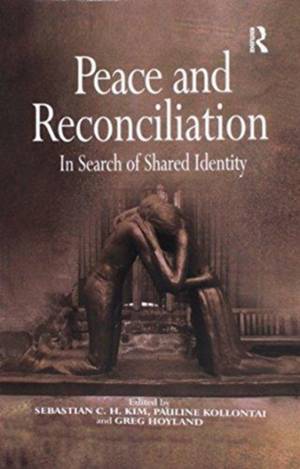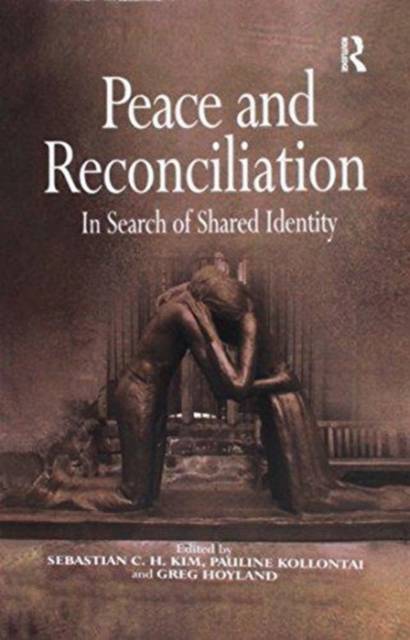
- Afhalen na 1 uur in een winkel met voorraad
- Gratis thuislevering in België vanaf € 30
- Ruim aanbod met 7 miljoen producten
- Afhalen na 1 uur in een winkel met voorraad
- Gratis thuislevering in België vanaf € 30
- Ruim aanbod met 7 miljoen producten
Zoeken
€ 112,95
+ 225 punten
Uitvoering
Omschrijving
Establishing a shared identity is an important part of any process of peace and reconciliation. This book discusses issues and theories of identity formation that can be implemented for peace and reconciliation from the perspectives of theology and religious studies, whilst interacting with politics, socio-cultural studies and economics. By focusing on the theme of peace and reconciliation, and employing an interdisciplinary approach, this volume will make a significant contribution to the discussion of the situation of the Korean peninsula, and wider global contexts. The volume explores theoretical issues such as political and economic implications of reconciliation; interfaith and biblical perspectives; and the role of religion in peace making. Furthermore the contributors examine practical implications of the theme in the contexts of Germany, Northern Ireland, South Africa, India, East Asia, Bosnia-Herzegovina and the Korean peninsula. The book offers invaluable insights for policy-makers, academics, and lay leaders, besides being an important tool for researchers and students of theology, religion, sociology, politics and history.
Specificaties
Betrokkenen
- Auteur(s):
- Uitgeverij:
Inhoud
- Aantal bladzijden:
- 218
- Taal:
- Engels
Eigenschappen
- Productcode (EAN):
- 9781138275386
- Verschijningsdatum:
- 30/11/2016
- Uitvoering:
- Paperback
- Formaat:
- Trade paperback (VS)
- Afmetingen:
- 150 mm x 230 mm
- Gewicht:
- 340 g

Alleen bij Standaard Boekhandel
+ 225 punten op je klantenkaart van Standaard Boekhandel
Beoordelingen
We publiceren alleen reviews die voldoen aan de voorwaarden voor reviews. Bekijk onze voorwaarden voor reviews.







